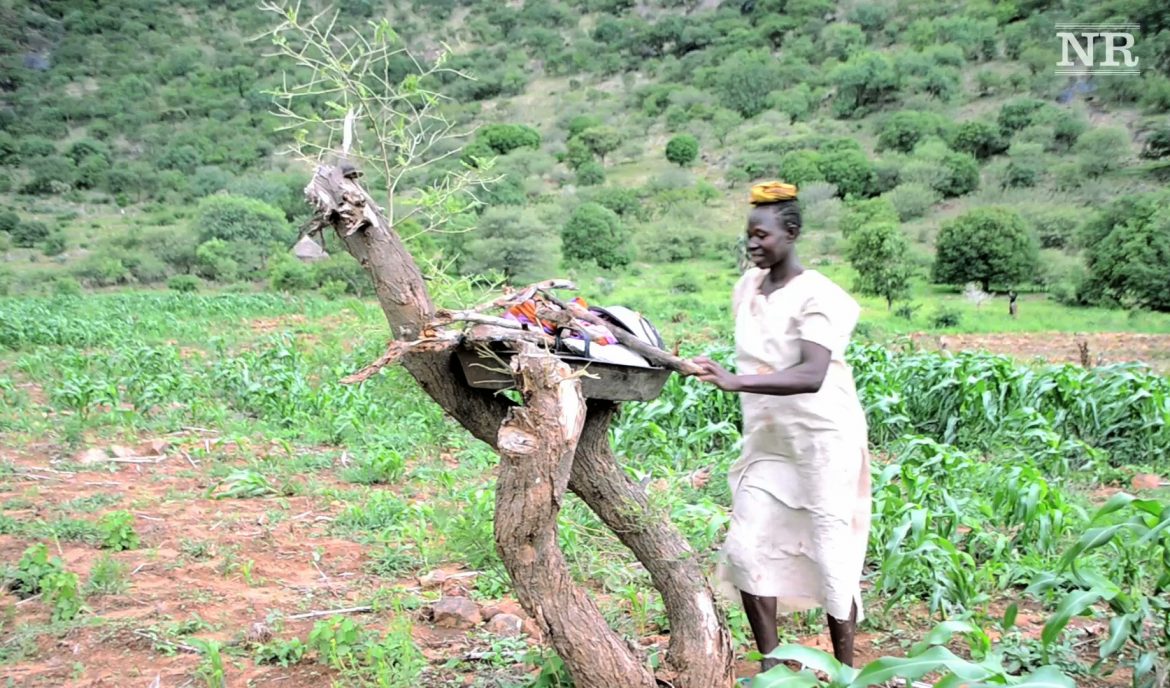Rauda Armani Kori has been out of the hospital now for more than four months. She has returned to her life, her daily work in her farm and her tea shop in the market. But now, there is hardly anything she can do without assistance.
Her work in the fields is laborious and slow. When she collects her pots and teakettles, her daughter must help her lift the tray onto her head so she can carry it to the market. When she returns in the evenings, her husband helps her take it down. Even something as simple as putting on her shawl – something she used to do without a thought – now requires her daughter’s help.
Rauda lost her arm in an Antonov bombing several months ago. She and her husband, Johanna Mathias Kuku, were working in their farm when they heard the plane’s low drone in the sky. They tried to run to their foxhole but it was too late. “I was in front of her,” said Johanna, “the Antonov dropped a bomb which hit her as she was walking. The bomb cut her arm off and she fell to the ground.”
Sitting next to his wife, Johanna described a scene of chaos as his neighbors carried him and Rauda to the nearest hospital. Rauda often relies on Johanna to tell the story because she cannot remember the incident.
“When I woke up next morning, I discovered that my arm was missing.”
There are no reliable data on the number of people who’ve lost limbs or been disabled since the war started in the Nuba Mountains in June of 2011, but Nuba Reports has recorded many incidents of civilian maiming and amputations over the past 18 months. Some people are hit by shrapnel, others accidentally detonate unexploded rockets and bombs hidden just beneath the ground.
All are left with permanent injuries that will affect them the rest of their lives.
Rauda has been forced to consider how she’ll approach some of life’s most fundamental tasks, including caring for a new baby, yet to be born. “I will hold it with my one arm, and my husband will also help me in handling it,” she said.
“I will fully monitor the situation,” replied Johanna. “I’ll lift the baby, feed him and help her because she cannot hold or properly feed him herself. “The first six months, I will not rest until he becomes strong and can do the breastfeeding alone.”





